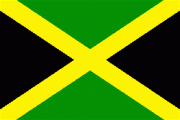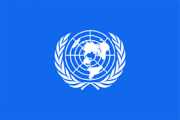Mr. President
Thirty years ago on this day, the United Nations Convention on the Law of the Sea was opened for signature in my homeland, Jamaica. This was a culmination of many years of debate which led to a compromise agreement which demonstrated the importance of multilateral efforts in establishing international norms.
This historic act ushered in a new chapter in the development of the law of the sea, as it established a legal framework for the conservation, management, exploration and exploitation of the living and non-living marine resources within and beyond areas of national jurisdiction. Most significantly, it also codified the principle that the resources of the deep seabed beyond areas of national jurisdiction, is the common heritage of mankind, to be utilized for the benefit of the international community.
It is therefore my special honour to speak on behalf of States Members of the Caribbean Community (CARICOM), namely Antigua and Barbuda, The Bahamas, Barbados, Belize, Dominica, Grenada, Guyana, Haiti, St. Kitts and Nevis, St. Lucia, St. Vincent and the Grenadines, Suriname, Trinidad and Tobago and, my own country Jamaica, at this Plenary Session of the General Assembly commemorating the 30th anniversary of the opening for signature of this landmark Convention.
For CARICOM Member States, today’s commemoration has special significance. Firstly, the region was an active player in the drafting of a just and equitable international regime governing maritime zones that operates to the mutual benefit of both developed and developing countries. Secondly, it was in Montego Bay, on Jamaica’s North Coast, where after many years of debate and spirited discussions, the Convention was finally opened for signature in 1982. As part of the 30th anniversary commemorative activities, the Government of Jamaica was therefore pleased to collaborate with the International Seabed Authority in July 2012, in unveiling a plaque at the historic site in Montego Bay where the Convention was opened for signature. The text inscribed on the plaque reads:
This plaque is installed in commemoration of the 30th anniversary of the opening for signature of the United Nations Convention on the Law of the Sea at the Wyndham Hotel in Montego, Jamaica on 10 December 1982, in recognition of the invaluable contribution of the Convention to the transformation of the legal architecture which governs the oceans, including the designation of the areas beyond national jurisdiction as the common heritage of mankind and its historic contribution to the maintenance of peace, justice and progress for all peoples of the world.
Mr. President,
On this commemorative occasion, it is fitting to pay a rich tribute to the early pioneers for their visionary leadership in anticipating the need for a comprehensive legal regime that would define the rights and responsibilities of nations in their use of the world’s oceans, including the management of the living and non-living marine resources. We also commend them for their astute diplomatic skills in crafting the 1982 Convention, as well as those who contributed to the adoption and ratification of the Convention. CARICOM States therefore wish to pay special tribute to the late Ambassador Arvid Pardo of Malta, the originator of the idea that the seabed and its resources in areas beyond national jurisdiction are the common heritage of mankind.
We in the Caribbean take great pride in the contribution of distinguished representatives of our region to the development of the Convention: the late Judge Lennox Ballah of Trinidad and Tobago, Judge Doliver Nelson of Grenada, the late Edward Laing of Belize, the late Honourable Dr. Kenneth Rattray and Judge Patrick Robinson of Jamaica, and the late Honourable Paul L. Adderley of the Bahamas. We are also pleased to recall that in November 1993, it was a CARICOM Member State, the Co-operative Republic of Guyana that deposited the 60th instrument of ratification – the number required to bring the Convention into force.
This is a time for the international community to be justly proud of its collective achievement. I take this opportunity to acknowledge the presence of Ambassador Tommy Koh of Singapore, President of the Third United Nations Conference of the Law of the Sea, in today’s commemorative session.
Occasions such as the one for which we have gathered here today, provide a valuable opportunity to reflect on how far we have come and to renew our commitment to tackle the challenges that lie ahead, as we resolutely pursue the full and effective implementation of the Convention. Mr. President, the United Nations Convention of the Law of the Sea has proven to be the most successful multilateral treaty. Over the past 30 years, the Convention has been an inspiring example for effective multilateralism. It served as an important frame of reference for initiatives in global political and economic development, and for the advancement of international peace and security.
At the political level, international disputes have been settled; good neighbourliness has been forged; and international law of the sea has been enhanced, through the implementation of the relevant provisions of the Convention. On the economic front, the resources of the ocean, including its rich bio-diversity have contributed much to technological advancement; innovations in pharmaceuticals; scientific research and human and social well-being.
The near universal adherence to the Convention attests to the high value placed on the regime it defines. Indeed, CARICOM Members States note with satisfaction the steady increase over the years, in the number of State Parties to the Convention and both implementing Agreements. We are therefore pleased to welcome Ecuador and Swaziland’s accession to the Treaty in September 2012, increasing the number of State Parties to 164. We remain steadfast in our support for the goal of universal participation and strongly urge those States which have not yet done so to become parties to the Convention and its related Agreements, so that its universal acceptance may be achieved in the near future.
In tandem with the growth in the number of States Parties, we observe positive developments relating to the state practice on the establishment of baselines, the delimitation of maritime boundaries, as well as submissions on the delineation of the outer limits of the continental shelf. This further demonstrates the efficacy of the Convention in providing the appropriate legal framework and in serving as a tool through which State Parties can address their maritime differences and concerns. The Convention has also given greater impetus for greater cooperation and understanding between states in promoting their maritime interests.
The Convention’s success over the past 30 years can also be attributed to the effective and seamless operation of the three institutions it has established by the Convention, namely the International Seabed Authority, the International Tribunal for the Law of the Sea and the Commission on the Limits of the Continental Shelf. These bodies provide for the comprehensive handling of the law of the sea issues in a complementary way within their respective areas of competence, thus avoiding duplication and ensuring cost-effectiveness. There has been a remarkable increase in the number of cases being brought to International Tribunal for the Law of Sea which is a testament to the quality of its judgment and advisory opinions. Likewise, the Commission on the Limits of the Continental Shelf has been carefully reviewing a large number of submissions and has provided a number of recommendations to States Parties seeking to establish the outer limits of their continental shelves.
CARICOM is privileged to host in Kingston, Jamaica, the headquarters of the International Seabed Authority, which has been entrusted with the mandate to administer, organize and control activities in the Area on behalf of all States. CARICOM is pleased at the considerable progress achieved by the Authority over the years in developing a framework for cooperation in the management of seabed resources. Important achievements include the development of regulations on prospecting and exploration of polymetallic sulphides, polymetallic nodules and cobalt rich ferromanganese crust in the Area, as well as the provision of training through annual workshops on the scientific and technical aspects of deep-seabed mining and also in the critical area of the protection and preservation of the marine environment.
CARICOM continues to underscore its unwavering commitment to the Authority and its work and we urge Member States of the Authority to honour their obligations in this regard including attendance at its annual sessions, in order to enhance the efficacy of its work.
An outstanding provision of the Convention which is as vital and relevant today as it was 30 years ago is “the study, protection and preservation of the marine environment.” For CARICOM Member States, the protection and preservation of the marine environment, including areas beyond national jurisdiction, remains an issue of fundamental importance towards the sustainable development of our economies. As Small Island Developing States, the sustainable development of the Caribbean Sea for present and future generations, is a fundamental priority for our economic viability and livelihood. Our history and socio-economic development have been closely tied to the sea. We therefore commend the focus of the Convention on the sustainable exploitation of the seabed’s natural and non-renewable resources. From the days of piracy to the attempt to explore for minerals, including oil offshore, the ocean and the sea have been a source of economic potential.
The Convention has done much to level the playing field allowing each country to sustainably and equitably exploit the resources of the world’s oceans. It is especially heartening that this opportunity is being afforded to developing countries, including Small Island Developing States.
Mr. President,
Thirty years on, there is no doubt that the United Nations Convention on the Law of the Sea remains an indispensable instrument for the sustainable management and use of the ocean and its resources. I can assure you that CARCOM Member States remain fully committed to the letter and spirit of the provisions of the Convention, which will continue to provide an essential foundation for ensuring that the oceans and its resources are managed effectively for the sustainable use of the world and all its peoples based on the principle of the common heritage of mankind.
I thank you.


